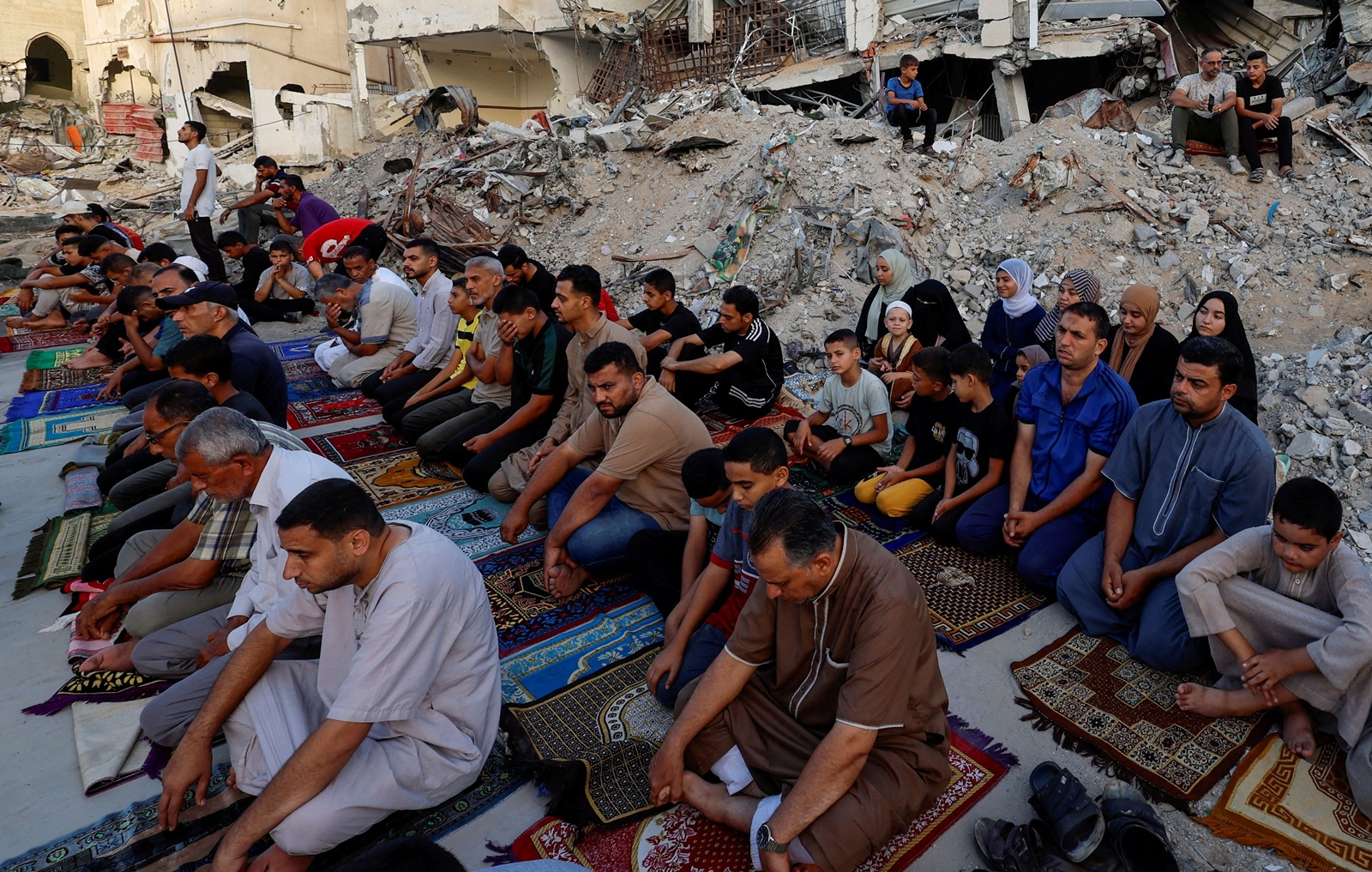Soon after the BJP-led NDA came into office for the third time, Delhi L-G Vinai Kumar Saxena gave his assent for the prosecution of writer-activist Arundhati Roy and former professor from Kashmir Sheikh Showkat Hussain under UAPA for a speech made at an event 14 years ago. The grounds for legal action seem to be an allusion to the secession of Kashmir from India and Roy saying that Kashmir “has never been an integral part of India”.
Responding to the arrests, News International (June 17) says, “This is a reminder that Modi 3.0 might not be much different from his previous two regimes despite the fact that the Indian voter did not give him or his party, the BJP, a simple majority.”
Pointing out that “this is the first time since independence that no Muslim MP has taken oath as minister after the elections”, the editorial adds: “For the moment, it seems as if Modi has not learnt any lesson and will continue to wage a war on India’s Muslim citizens and India’s dissenting voices a la Arundhati Roy. Modi 3.0 will most likely be another disaster for critical voices in India and its minorities.”
On China-Pak mention of Kashmir
At the same time, there has been an exchange of words on the mention of Jammu and Kashmir in a joint communique published by Pakistan and China. India’s External Affairs Ministry “rejected the ‘unwarranted references to Jammu and Kashmir’, proclaiming that ‘any move to legitimise Islamabad’s … occupation of territory’ is unacceptable.”
Express Tribune (June 21) believes that “any beating about the bush, by calling it [Kashmir] either an internal issue of India, or one that is not up for debate, is akin to defying logic, conventions and international law, per se… It’s high time for India to act and react in accordance with its growing image as a progressive economy and a regional power.”
On Eid in Gaza
This year, Eid al-Adha fell on June 16 in some parts of the world. While many were fortunate enough to celebrate the occasion with their families and communities, feasting, others such as those in Gaza continue to face atrocities. The media in Pakistan reflects on the meaning of the festival and mourns the condition of those suffering in Palestine. Though the UN resolution gave a glimmer of hope, Israel has not backed down.

Daily Times (June 17) says, “It is a time to extend a helping hand to the entire neighbourhood to share blessings, and to reaffirm the bonds of kinship and fellowship… Hopefully, we can stand tall in our perseverance and include our less fortunate brothers and sisters in our celebrations.”
The Nation (June 17) speaks specifically for “their Palestinian sisters and brothers in an act of solidarity. Palestinian Muslims are being remembered in prayers while the Muslim world marks the Great Sacrifice of all time — the tradition of Ibrahim (AS).”
On yet another mob lynching
On June 20 evening, Mohammad Suleman, a resident of Sialkot city in the Punjab province was detained by the police for allegedly desecrating the Holy Quran. The outrage from this is said to have led to announcements from local mosques to “storm the police station” (Dawn, June 22). While Suleman was in custody, the mob set fire to the station and burned him alive. There is been severe condemnation from the media for this mob lynching incident — “far from the first instance of mob violence in the country” (News International, June 22).
Dawn (June 22) says, “This sort of ghastly behaviour has become the norm in Pakistan, as such incidents are occurring with frightening frequency.” Deliberating on the conditions that may be responsible for cases “particularly on the rise in Karachi”, it says, “The use of dubious blasphemy allegations is a more complex phenomenon, where illiteracy, extremism and the weakness of the state have created an explosive situation.”
News International (June 22) calls upon the community to “uphold the principles of justice, protect vulnerable communities, and foster a climate of tolerance and respect for due process”. Recognising the role of the state, it says, “People taking the law into their own hands and assuming the role of judge, jury and executioner is simply anarchy… The state has to step up and fill its role as the final arbiter when it comes to accusations of any nature.”
On two instances of animal cruelty
Recently, two incidents of animal cruelty have shaken up the country. The first incident took place in Sindh’s Sanghar district. A camel wandered into a field and the owner of the field chopped the camel’s leg off for it. In the second incident that took place in a village near Rawalpindi, a donkey’s ears were cut off allegedly because of a land dispute between two men. This shocking cruelty towards animals has been slammed by the media.
Daily Times (June 16) expresses its horror saying, “The sheer callousness of this act has sparked outrage as the heart-wrenching shrieks (captured on a video that has gone viral on social media) demand humanity to take a deeper look within and wonder whether they deserve to be celebrated as a superior race. It is a grim reminder of the depths to which human cruelty can sink.”
Dawn (June 20) lists some ways that this cruelty can be prevented in the future, The editorial states, “The first step towards providing a safer environment for the country’s animals involves punishing those who harm them… Secondly, society needs to be sensitised to the fact that animals also have a right to life and to live without harassment or violence.”
adya.goyal@expressindia.com


